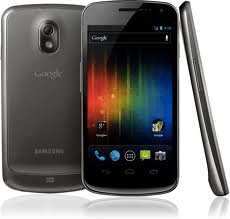Earlier this afternoon Droid-Life noticed something strange: the Android developer devices page had been modified to remove the Verizon Galaxy Nexus, leading the site to question whether Google may have removed support for the device because of its spat with Verizon over Google Wallet. Which would stand to infuriate a lot of new Galaxy Nexus users (including myself), who are looking forward to receiving device updates directly from Google and not having to wait for Verizon to get around to pushing their own releases.
Thankfully, we’ve confirmed this isn’t the case: Google says it will indeed be updating the Verizon Galaxy Nexus in the future.
Turns out Droid Life made a bit of a logical leap, as the page stated that No CDMA Devices were supported any more, and other devices including the Sprint Nexus S 4G had been removed as well. In response to the post, Google has written a clarification to the Android Contributors group, in which it explains that CDMA devices are being removed from the Android Open Source Project site because they need carrier-signed .apk files (which users can’t generate). Here’s the post:
Thankfully, we’ve confirmed this isn’t the case: Google says it will indeed be updating the Verizon Galaxy Nexus in the future.
Turns out Droid Life made a bit of a logical leap, as the page stated that No CDMA Devices were supported any more, and other devices including the Sprint Nexus S 4G had been removed as well. In response to the post, Google has written a clarification to the Android Contributors group, in which it explains that CDMA devices are being removed from the Android Open Source Project site because they need carrier-signed .apk files (which users can’t generate). Here’s the post:
Hello! This is a quick clarification about support for CDMA devices.Source: http://techcrunch.com/2012/02/03/fear-not-google-will-still-support-the-verizon-galaxy-nexus/
For various technical reasons, recent CDMA Android devices implement core telephony functionality in .apk files provided in binary form by the carriers. To function correctly, these .apk files must be signed by the so-called “platform” key. However, when an individual creates a custom build from the AOSP source code, they don’t use the same signing key as these CDMA flies were signed with.
The result is that these files don’t work properly, and pure AOSP builds running on these devices can’t place calls, access mobile data, and so on. Because we aim to make sure that we are as clear as possible about the degree of support that devices have, we updated the docs over at source.android.com to reflect this reality.
We will still make available as many as possible of the closed-source binaries for these devices, and Nexus devices will continue to have unlockable bootloaders. And, of course, GSM/HSPA+ devices are still supported, as are any other devices we’re able to support. We’ve simply updated the documentation to be clearer about the current extent of CDMA support.
We are of course always working to improve support, and we’ll keep everyone updated as we make improvements. Thanks as always for your interest in AOSP!
- Dan


No comments:
Post a Comment